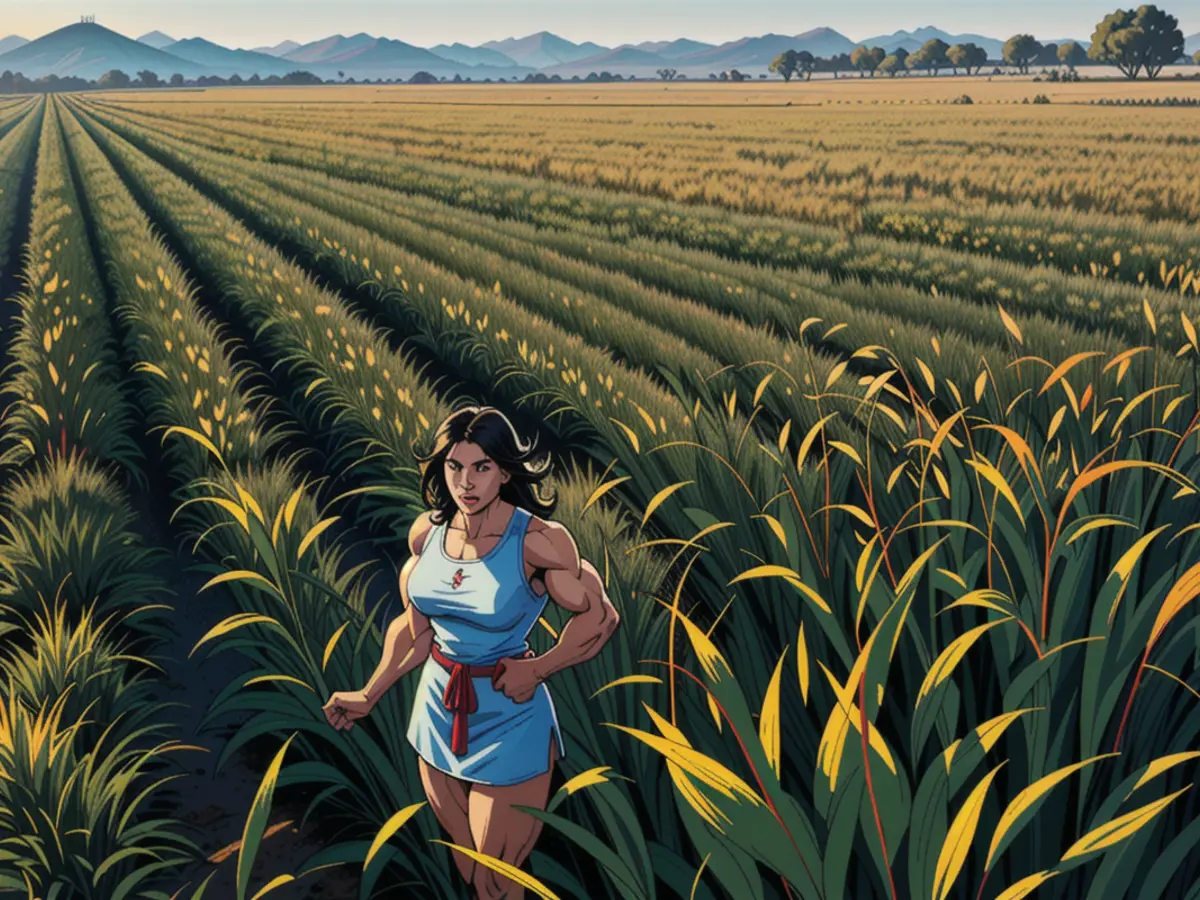Innovative Agriculture Revolution: Transformative Farming Practices in Africa and Beyond via AI Technologies
Artificial Intelligence (AI) is making waves in various industries, and agriculture is no exception. Instead of solely focusing on advanced AI models developed by the U.S. and China, let's explore how AI is helping tackle unique agricultural challenges in Africa.
In an intriguing presentation, Jonas Sogbadji, a French robotics and control engineer, discussed the application of AI in African agriculture. Sogbadji emphasized that African farmers face numerous difficulties, such as unpredictable weather, pests, and diseases, coupled with limited access to modern resources. Consequently, farmers often experience lower yields and food insecurity.
But what can AI do to help? Sogbadji painted a vivid picture of even the simplest AI applications, like drones monitoring crop health. With the integration of ground sensors analyzing soil data, these systems can pinpoint areas affected by diseases, even at early stages. This allows farmers to intervene timely, preserving yield and minimizing losses.
Furthermore, these AI solutions could potentially create job opportunities and contribute to addressing malnutrition in the developing world. The application of smart systems in agriculture could empower smallholder farmers, enabling them to boost food security and mitigate the impact of climate change.
The controversy surrounding Genetically Modified Organisms (GMOs) has long overshadowed discussions about feeding the world. Because of public skepticism, nations and regions employ different criteria to determine what is safe. In contrast, AI-driven farming techniques are gaining traction as they aid in crop management without compromising food quality. In fact, they may even improve it by reducing the use of harmful chemicals.
Embracing AI and technology could be a significant step towards making agriculture more sustainable for future generations. By minimizing the use of harmful chemicals like herbicides and pesticides, we can create a healthier environment. Over time, innovations in AI will likely bring about a sustainable future where farmers can achieve higher crop yields while protecting the environment.
While the World Health Organization has raised concerns about GMOs, AI might be the solution we have been looking for to feed the world. By harnessing AI's potential, we can address agriculture's challenges responsibly and ensure a sustainable future for all.
In the realm of enterprise tech, there's growing interest in leveraging AI to revolutionize agriculture in Africa. For instance, AI-powered drones can be used to monitor crop health, identifying issues like pest infestations or nutrient deficiencies early on, which can help minimize energy consumption by reducing the need for excessive use of fertilizers or pesticides.
Moreover, the integration of AI in agriculture can increase energy efficiency. By analyzing weather patterns and soil data, AI systems can optimize irrigation, ensuring that water is used effectively, thereby reducing energy expenditure on water pumping and waste due to over-irrigation.






